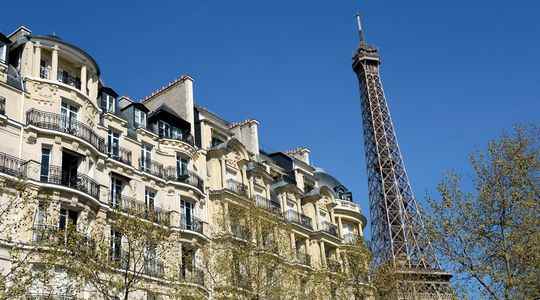It is a broken election campaign promise that Anne Hidalgo tries to justify in a detailed letter, published on the Paris City Hall website on Monday 7 November. In 2020, the outgoing candidate for mayor of Paris assured that she would not increase taxes if she were re-elected. Two years later, “due to a worrying national and international context, marked by climate change, the energy crisis and high inflation”, Hidalgo made the choice to significantly increase the property tax rate, which will increase, in 2023, from 13.5% to 20.5%, an increase of 52%.
Beyond the economic situation, Anne Hidalgo recalls that Paris has the “lowest property tax in France”, the national average in major cities being 41.61%, against 13.5% currently in the capital. Moreover, it has not increased since 2011. Thus, the owner of a 50m² dwelling will pay 665 euros in property tax next year, against 438 euros currently.
For the owner of a 75m², the tax will increase from 576 to 874 euros. And while the first deputy mayor of Paris, Emmanuel Grégoire, admitted “a very important effort required of the people concerned”, he added that Paris was a city which had a relatively low percentage of owners (32%). If he mentions “the people concerned”, it is because they are not all concerned. Indeed, the town hall of Paris explains that “owners engaged in the thermal renovation of their property, as well as those encountering economic difficulties” would be 100% exempt from this tax. The second category includes recipients of the solidarity allowance for the elderly and of the supplementary disability allowance, taxpayers over 75 and recipients of the means-tested disabled adult allowance.
The State denounces “management problems”
With these additional revenues, which will allow the town hall of Paris to borrow less, 514 million euros in 2023 against 860 million this year, Anne Hidalgo intends to “maintain solidarity through daily public services and accelerate ecological transformation”. In the absence of this additional financial contribution, the former socialist presidential candidate should resolve to make drastic choices, such as “closing swimming pools, reducing the number of places in nurseries or even developing fewer cycle paths”. If Paris has to come to this, it is, according to her, because of the abandonment of the State. In his press release, Hidalgo explains that “the government refused to examine the amendments supported by the associations of mayors”, which planned, for example, to “make the owners of second homes and accommodation left empty”, or even “to increase the tourist tax for palaces and luxury hotels”. Worse, he would have even refused to reimburse “part of the sums committed for solidarity during the Covid crises”.
The government was quick to react, and through its Minister of Public Accounts, Gabriel Attal, declared that the State had “strongly supported the city of Paris”, but that it could not “resolve the problems management and the absence of structural reforms”. He notably denounced the status of civil servants in the city of Paris, “more numerous than at the European Commission and not always every 35 hours”.
Opposition parties have also made their anger heard. The mayor Les Républicains of the 7th arrondissement of Paris, Rachida Dati, posted on Twitter a report on the action of Anne Hidalgo since 2014, which, according to her, has dug the city’s debt to 10 billion euros, when it was only one billion in 2001. As for the president of the MoDem group Democrats and Ecologists at the Paris Council, Maud Gatel, she worried “about the effect of this measure on Parisian families”, already undermined by the inflation of everyday products.
